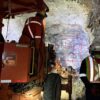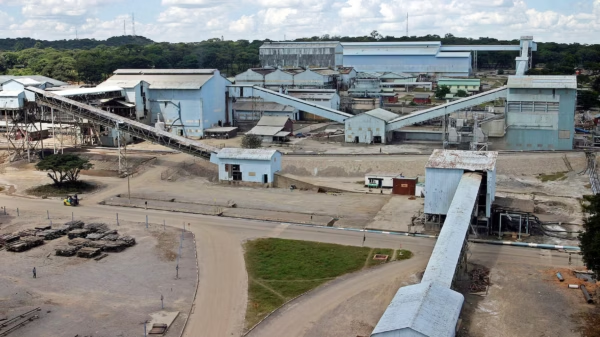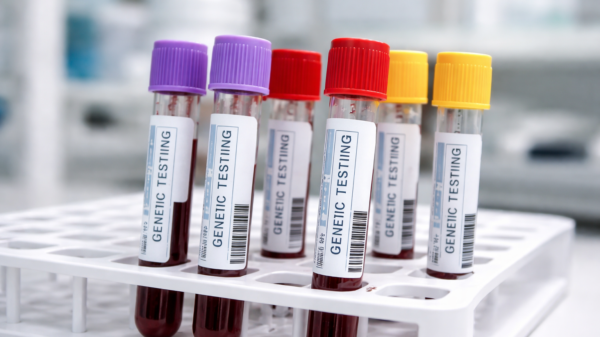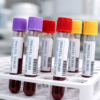A McMaster University startup is harnessing artificial intelligence to improve lung cancer diagnosis and treatment decisions.
NodeAI, a company founded out of Hamilton, announced on Friday that it had developed software that analyzes ultrasound images of lymph nodes. Clinical trials show it doubles the accuracy of standard diagnostic methods, offering patients a stronger chance at survival.
The technology uses an AI model trained on thousands of ultrasound scans. These images include both healthy and cancerous lymph nodes, allowing the program to identify patterns invisible to the human eye. Traditional methods rely on physicians interpreting these images during procedures, but results are often inconclusive.
Waël Hanna, head of thoracic surgery at McMaster’s Faculty of Health Sciences and a surgeon at St. Joseph’s Healthcare Hamilton, knows this problem well.
He explains that current procedures involve inserting a camera and ultrasound machine into the chest to locate lymph nodes. Each of the five or six nodes typically requires two or three biopsies. With every biopsy, patients experience bleeding, pain and coughing. Eventually, they may no longer tolerate the procedure. The test often remains inconclusive, forcing doctors to repeat the process.
Clinical trials reveal NodeAI’s software achieves 80 per cent accuracy compared with 40 per cent without it. Consequently, physicians can make better decisions with fewer invasive tests.
The idea for NodeAI came to Hanna unexpectedly. Several years ago, he felt frustrated by inconclusive results while analyzing ultrasound images. His phone rang, and he unlocked it using facial recognition.
Read more: Breath Diagnostics leaders promote their mission at Miami investment conference
Read more: Breath Diagnostics leader speaks at lung cancer education event in Louisville
The physician’s role involves solving problems under pressure
NodeAI’s system was trained using years of ultrasound data gathered at the Esophageal Thoracic Endosonography Centre at St. Joe’s. This robust database provided the foundation for an AI capable of transforming lung cancer diagnostics.
Although lung cancer is less common than breast, colon or prostate cancer, it causes more deaths than all three combined. Treatment depends heavily on whether cancer has spread to the lymph nodes. With NodeAI, doctors can determine the status of these nodes quickly and more reliably.
Hanna compares the physician’s role to MacGyver, the television character known for solving problems under pressure.
“Finding the correct treatment is like cutting the correct wire. NodeAI is essentially telling us which wire to cut and giving us a much higher chance of curing them with the best treatment.”
The startup benefited from several McMaster initiatives, including the Innovation Matchmaking Program, as well as funding from McMaster Surgical Associates and the Hamilton Academic Health Sciences Organization. These resources helped NodeAI move from an idea to a funded venture.
The company has already raised its first round of financing and is pursuing regulatory approval. Clinical trials are scheduled to conclude by March, with a target launch date of 2027.
If successful, NodeAI could replace guesswork with precision in one of the deadliest cancers. Additionally, it may spare patients repeated invasive biopsies, offering them both relief and better odds of survival.
Read more: Breath Diagnostics opens Respiratory Innovation Summit with captivating presentation
Read more: Breath Diagnostics now offering a compelling investment opportunity
Several organizations are using AI to fight cancer
McMaster and NodeAI are part of a growing trend of institutions and companies taking the fight to cancer.
Several organizations are leveraging artificial intelligence (AI) to enhance early detection and personalize treatment, making significant strides in oncology.
Breath Diagnostics Inc. has developed OneBreath, a non-invasive technology that analyzes a single exhaled breath to detect lung cancer. Utilizing a patented microreactor, OneBreath captures volatile organic compounds (VOCs) associated with cancer, achieving 94 per cent sensitivity and 85 per cent specificity in clinical trials involving over 800 patients. Furthermore, this approach offers a painless, radiation-free alternative to traditional screening methods.
Tempus AI is another leader in AI-driven oncology. The company combines clinical and molecular data with machine learning to support personalized cancer treatment decisions.
Its RNA sequencing platform, recently cleared by the U.S. Food and Drug Administration, aids in identifying which patients are most likely to respond to specific therapies, enhancing the precision of clinical trials and treatment plans.
Onc.AI focuses on metastatic lung cancer, using real-world data and AI models to predict clinical outcomes.
Their platform assists oncologists in making informed decisions by analyzing diagnostic imaging, electronic medical records, laboratory results, and genomic data, aiming to improve treatment strategies.
Furthermore, companies like Guardant Health (NASDAQ: GH) and Grail Inc (NASDAQ: GRAL) are developing multi-cancer early detection tests. Guardant’s Shield test, for instance, utilizes AI to analyze blood samples for signs of various cancers, aiming to detect them before symptoms appear.
Meanwhile, these innovations show AI is increasingly transforming the fight against cancer. Additionally, they offer less invasive testing, more accurate diagnostics, and the potential to tailor treatment more effectively.
.
Follow Joseph Morton on Twitter
joseph@mugglehead.com














